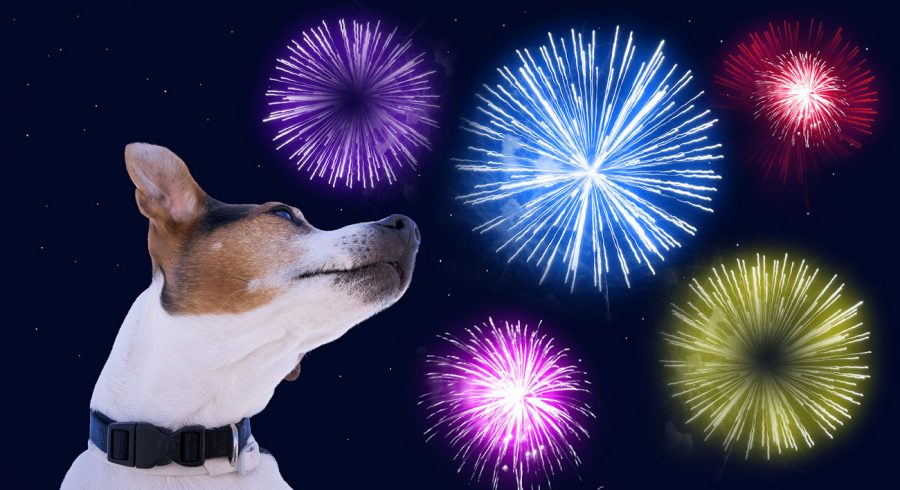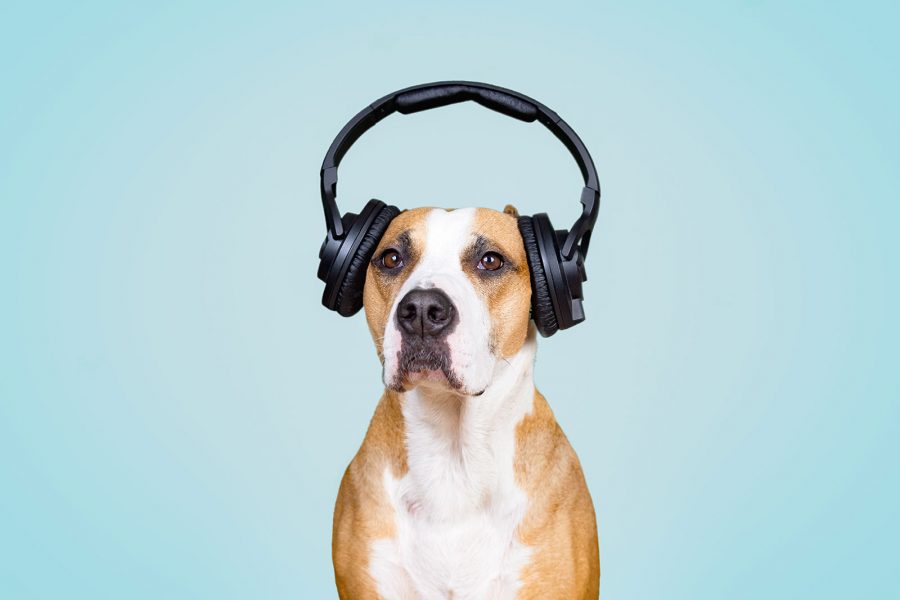We all love New Year’s Eve and for many people fireworks are part of this celebration. Dog owners, however, know how fireworks might be terrifying to dogs. In fact, up to 80% of dogs are sensitive to loud noises, including fireworks or thunderstorms.
Why are dogs sensitive to loud noises?
The human hear, fireworks or thunderstorms are not particularly annoying. Dogs, however, have very sensitive hearing. Dogs can hear noises between 67 Hz and 45,000 Hz, while human hearing is up to 23,000 Hz. When a noise is barely hearable at 4 meters, for a dog it sounds clear and loud at 25 meters. Moreover, we should remember that the limit in the intensity of fireworks is set for 120 dB, because the human hear perceives sounds as painful from 140 dB. However, recent research has found an ideal limit around 97 dB for dogs. Therefore, it might as well be that fireworks noises are painful for dogs due to their acute hearing and the amplification given by their large ears.

Moreover, dogs do not understand what is happening and that there are no real dangers. From a dog’s point of view, fireworks are therefore painful and unpredictable. This may cause anxiety, fear or even phobia, when the reaction is extreme. Phobic dogs might even become severely injured in an escape attempt or they might become lost or become involved in road traffic accidents. Additionally, very recent research has shown that most of the dogs that are sensitive to noises are affected by joint problems or other painful conditions. Researchers believe that anxiety and fear might be a consequence of the painful feeling caused by a startle in an arthritic dog. Or, again, pain and fear neural pathways might be cross wired. For these reasons, it is important always have an evaluation for pain when the dog is showing a form of noise sensitivity.
How to protect a dog from the fear of fireworks?
The first step we can take is to habituate our dog, within reasons, to any loud and sudden noises that the dog might encounter in their life. It is possible to do so via recorded sounds, that should be played initially at a very low volume and be gradually increased. While the recording is played, we should keep our dog busy with some pleasant activity such as play. It is important that our dog should never show any sign of discomfort when we increase the volume.

We should also physically protect our dog from loud noises by closing doors and windows before they start. We can also play the radio or the telly to cover the noise coming from outside. The dog’s bed should be placed somewhere our dog feels safe and protected, away from any window. When fireworks are playing, we can also distract our dog with a fun and engaging game, such as problem solving or a Kong toy.
Finally, we should make sure we walk our dog before the loud noises begin and repeat a late walk after all the chaos has subsided. Because there is always a risk our dog might escape, we should make sure our contact details on their collar are up to date and we should apply a GPS tracker, such as Kippy Evo.
If none of the suggestions above are successful, we should also seek a consultation with a pet behaviour counsellor
Can noise fear be treated?
Luckily it is very simple to treat noise sensitivity, regardless the severity of the problem. Therefore, if we notice this type of problem, it is important to consult with a pet behaviour counsellor.
Federica Pirrone, Mariangela Albertini, Patrizia Piotti researchers at UNIMI Veterinaria
